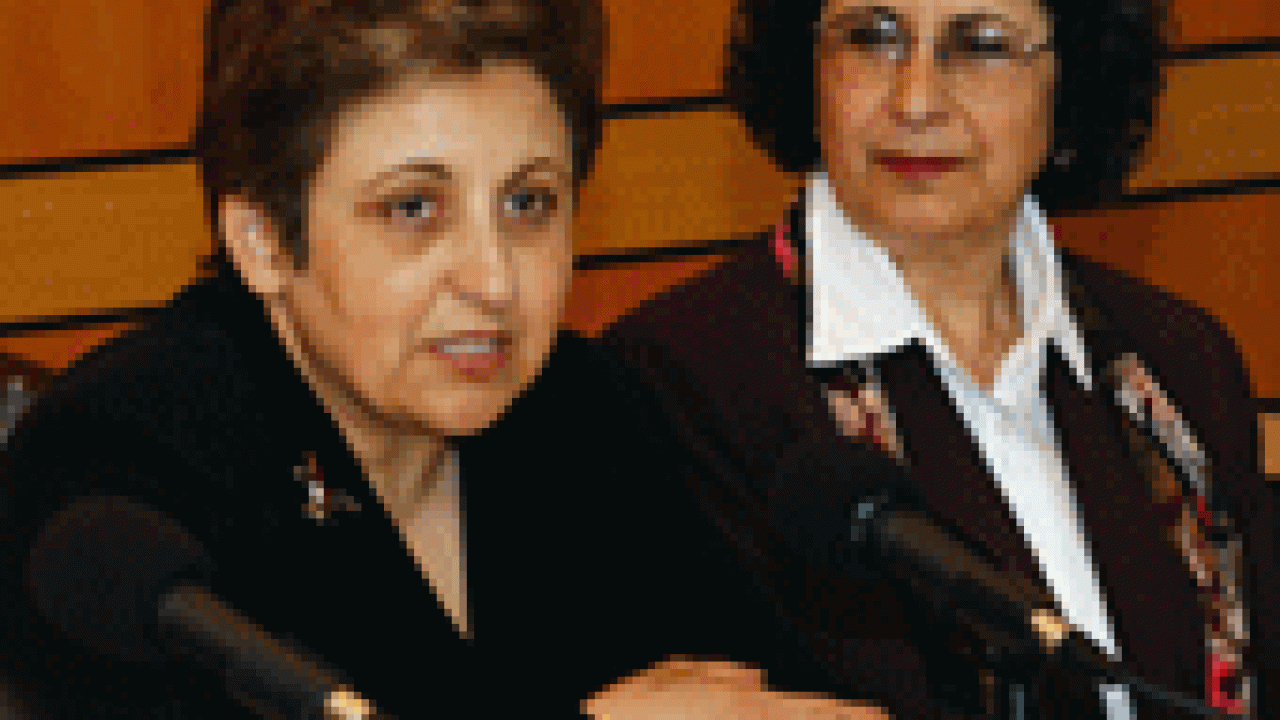Shirin Ebadi says that people can change the world when they take a stand against authority on issues like women's rights and democracy.
Ebadi, a lawyer and human rights activist, told a sold-out hall at Mondavi Center Tuesday night about how Iranian women protested in the streets a couple years ago to pass a law that would give back child custody rights to mothers.
"When they saw the anger of these women," said Ebadi, who has been imprisoned several times for her work on religious freedom and free speech, "the government tried to provide some answers. Within two weeks a law that had been pending for two years was passed immediately."
Ebadi won the Nobel Prize in 2003 for her efforts to promote equal rights for women and children. She was the first Muslim woman and first Iranian to receive the award.
During her lecture "Human Rights, Democracy and Islam," Ebadi said the "blossoming of self-confidence" plays a key role in advancing the rights of both women and men. "Peace within makes for peace on the outside."
On the other hand, she said, when someone — man or woman — is robbed of their dignity and not given full status, then self-confidence withers and peace fails.
Ebadi noted a distinction between the status of women in Western and Middle Eastern countries.
"There is no doubt women are oppressed, though sometimes this is hidden and other times it is obvious," said Ebadi, the first woman in the history of Iran to serve as a judge.
While Western women enjoy legal rights but are not fully represented in economic and political leadership positions, Middle East women are faced with the more fundamental problem of lacking legal and economic rights, she said.
A "patriarchal" or "tribal" culture in Iran and the Middle East that condones such practices as polygamy and makes it almost impossible for women to get a divorce is the problem, she said.
Ebadi noted that while 63 percent of Iranian university students are female, the unemployment rate of women is three times higher than men. And women simply do not attain "sensitive" political and economic leadership positions.
The good news, however, is that in Iran "the feminist movement is gaining power" and will continue to do so with the right kind of international assistance and pressure.
Ebadi praised the impact of higher education on societies.
"The university is for those who take pride in the number of books they've written or the number of students they've taught, rather than the material gains" of life, she said.
Navid Zebarjadi, a biology major, was impressed by Ebadi's leadership on seemingly "unpopular causes" in Middle Eastern countries.
"She's been involved in a lot of issues I care about," he said.
Carol Livingston, a Davis resident, said she attended the lecture because Ebadi was an example of someone "who stood up for women's rights."
And for David Rehman, the experience was partly self-discovery. "I'm half Iranian and I've never been to an event like this."
Media Resources
Clifton B. Parker, Dateline, (530) 752-1932, cparker@ucdavis.edu
